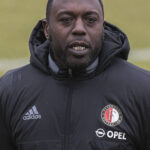Georgia Amoore’s Coaching Potential Revealed by WNBA GM Survey
The WNBA is a league that thrives on talent, not just on the court but also on the sidelines. Coaching has become an increasingly vital part of the game, with strategic minds shaping the future of women’s basketball. In a recent survey conducted among WNBA general managers, an unexpected name emerged as a potential future coaching star: Georgia Amoore. Known primarily for her dynamic playmaking as a point guard, Amoore’s basketball IQ and leadership qualities have caught the attention of key decision-makers around the league, sparking discussions about her potential transition to coaching once her playing career concludes.
Georgia Amoore, a standout guard for Virginia Tech, has built a reputation as a floor general with an innate ability to read the game. Her vision, decision-making, and clutch performances have made her one of the most respected young players in college basketball. But beyond her scoring and playmaking, it’s her understanding of the game that sets her apart. Teammates and coaches often praise her for her ability to break down defenses, communicate adjustments on the fly, and motivate those around her—qualities that translate seamlessly into coaching.
During her time at Virginia Tech, Amoore has been instrumental in leading the Hokies to deep tournament runs, showcasing her ability to perform under pressure. Her coach, Kenny Brooks, has frequently highlighted her basketball intelligence, noting that she often sees plays develop before they happen. This anticipatory skill is a hallmark of great coaches, who must constantly stay one step ahead of the opposition.
The annual WNBA GM survey provides insights into how league executives view current trends, players, and future prospects. This year, when asked about potential future coaches among active college and WNBA players, multiple GMs mentioned Amoore’s name. One anonymous GM stated, “She has that rare combination of passion, knowledge, and the ability to connect with players. You can tell she’s a student of the game, and those are the ones who often make great coaches.”
Another executive pointed to her vocal leadership and adaptability as key indicators of coaching potential. “The best coaches are the ones who can adjust in real time, and Georgia does that naturally on the court. She understands spacing, timing, and how to exploit mismatches—things that are critical when drawing up plays from the bench.”
Transitioning from player to coach is not always seamless, but the WNBA has seen several successful examples. Becky Hammon, a former All-Star point guard, is now one of the most respected head coaches in the league after cutting her teeth as an assistant in the NBA. Similarly, Kristi Toliver has balanced her playing career with an assistant coaching role in the NBA, proving that high-IQ players can excel in both roles.
For Amoore, the path could follow a similar trajectory. Many believe she would benefit from starting as an assistant coach to gain experience in game planning, scouting, and player development before eventually taking over a team. Given her natural leadership, she could also be a strong candidate for player development roles early in her coaching career, helping young guards refine their skills.
The best coaches in basketball history—from Pat Summitt to Geno Auriemma in the women’s game, and Gregg Popovich in the NBA—share common traits: deep basketball knowledge, relentless work ethic, and the ability to inspire players. Amoore’s playing style suggests she possesses these qualities.
Her ability to remain composed in high-pressure situations, her willingness to hold teammates accountable, and her knack for making in-game adjustments all point toward a successful coaching future. Additionally, her experience playing under Kenny Brooks, a highly regarded tactician, has likely given her insight into effective coaching methodologies.
While the potential is evident, Amoore would face challenges in transitioning to coaching. The WNBA coaching landscape is highly competitive, and even former stars must prove themselves in assistant roles before earning head coaching opportunities. Building a network, studying film at a deeper level, and learning the administrative side of coaching (such as managing rotations and player personalities) would all be part of the learning curve.
However, those who know her game believe she has the work ethic to overcome these hurdles. If she chooses to pursue coaching after her playing days, she could become a trailblazer in the next generation of WNBA coaches.
Georgia Amoore’s name surfacing in WNBA GM discussions as a future coaching prospect is a testament to her basketball acumen. While she is still focused on her playing career, the recognition from league executives highlights the respect she has earned as a thinker of the game. Whether she eventually makes the transition to coaching remains to be seen, but one thing is certain: her understanding of basketball and leadership abilities make her a prime candidate to succeed on the sidelines.
If she does take the leap, the WNBA may soon see another former player-turned-coach making waves—and Georgia Amoore could be at the forefront of that movement. For now, fans and analysts alike will watch her playing career with even greater interest, knowing that her impact on the game may extend far beyond her years as a player.










